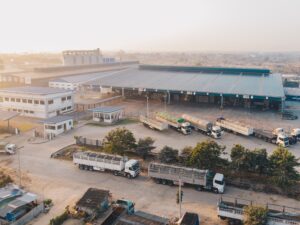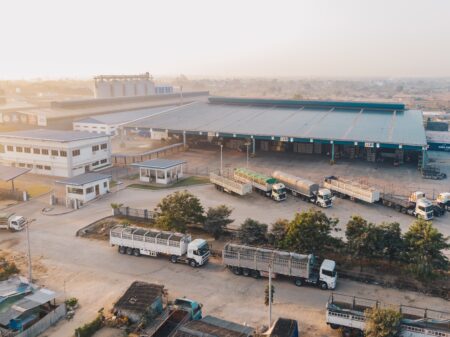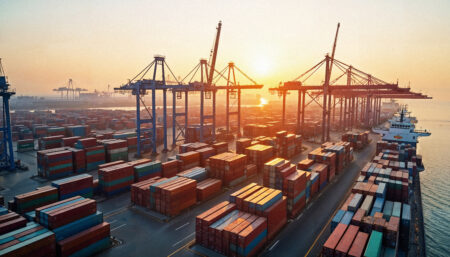Avishkar Srivastava, Chief Innovation Officer, PDP Group, delves into AI’s impact on logistics—from coordinated systems and real-time tracking to data-driven decision-making. Emphasises gradual adoption, structured databases, and upskilling initiatives.

Artificial intelligence moulds digital experiences, impacting web content and recommendations
In the dynamic logistics landscape, AI technologies are revolutionising operations, enhancing efficiency, and refining decision-making processes. Coordination intricacies in the industry, even for basic shipments, now involve substantial data exchanges. Anticipating AI’s rise, the focus shifts to automating error detection by comparing ongoing shipments with extensive historical data. Success in AI implementation hinges on structured databases and systematic infrastructures, particularly in Micro, Small, and Medium enterprises (MSMEs). This strategic mindset ensures heightened efficiencies, unlocking the full potential of advanced AI tools across diverse sectors.
Revolution
In logistics, AI-powered systems revolutionise real-time tracking, embracing IoT through RFID E-Sealings and ECTS for insightful export shipments. Growing adoption of tracking devices enhances domestic movements, optimising routes, reducing pilferage, and expediting transit times. Despite competitive pricing, more vendors are urged to use electronic cargo tracking for cross-border movements.
Automation
AI-based technologies are driving automation in logistics, with notable adoption by larger corporations and e-commerce-focused warehouse owners. In contrast to Western markets, India benefits from a cost-effective manpower pool. Associations like the Logistics Skill Council provide skilled operators. The focus is on integrated software for warehouse management, encompassing inventory, cargo records, and equipment monitoring. Investments in electric forklifts and the upskilling of operators are evident. However, in the Micro, Small, and Medium Enterprises (MSME) sector, standout developments in warehouse automation using AI are yet to materialise, highlighting a current disparity in adoption across different scales of operations.
Strategisation
Artificial intelligence (AI) moulds digital experiences, impacting web content and recommendations. Leveraging AI for decision-making requires strategic data collection, discerning patterns in driver leave times, warehouse commodity storage, and historical inquiries. This optimisation journey starts with adopting cloud-based software and building a structured database. A best practice recommends starting small for consistency, recognising that structured databases lay the groundwork for impactful AI integration into decision-making processes.
Regulation
In India, AI regulation remains unclear. Despite initial government emphasis on an innovation-friendly environment without AI regulations in April 2023, subsequent plans revealed the regulation through the ‘Digital India Act.’ The evolving landscape prompts a look at Western AI regulations. Acknowledging the transformative impact of generative AI tools like ‘Open AI,’ ‘Bard,’ and ‘Jasper,’ the sector continues to navigate the uncharted territory of AI governance, seeking balance between innovation and regulatory frameworks for a sustainable future.
Evolution
In logistics, AI adoption prompts a shift in workforce dynamics, akin to historical industrial revolutions. Contrary to job loss concerns, the trend foresees evolution with upskilling initiatives. Human adaptability remains crucial, leveraging AI for enhanced effectiveness. Work dynamics evolve towards data-centric planning, reducing dependency on traditional decision-making. This transformative approach ensures a positive, long-term impact on employment within the logistics sector.











